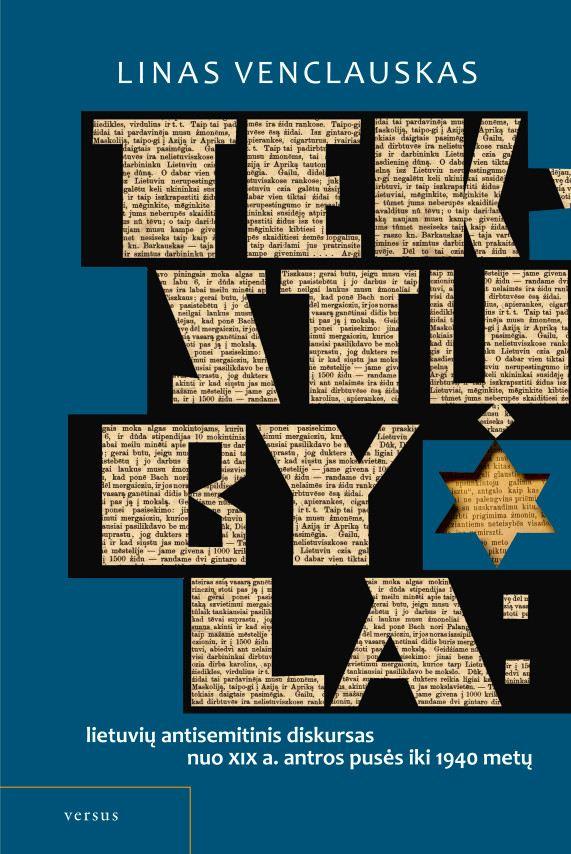The book “Tekstų byla: lietuvių antisemitinis diskursas nuo XIX a. antros pusės iki 1940 metų” (The Case of Texts: Lithuanian anti-Semitic Discourse from the second half of the 19th century to 1940) (Lithuanian) by Linas Venclauskas can be purchased at the Good Will Foundation https://gvf.lt/en/e-shop/.
This book by Linas Venclauskas is primarily about the projections of relations between the Lithuanian and Jewish communities in 1883-1940. It discusses the contradictions and differences between Lithuanians and Jews seen by Lithuanian authors. The analyzed period of relations between Lithuanians and Jews coincides with the period of national revival, ideas of statehood and later consolidation and creation of statehood. In this case, the word “creation” is essential: historically, relations between Lithuanians and Jews had their own development, but the logic of modernity says that reality and relationships are created, both individual and collective self-determination are important here, and creation begins with images and words. A world created by words creates patterns of behavior and relationships. The analyzed period was a new experience for Lithuania, so a lot had to be created anew or differently. Precisely because of this, oral projections of Lithuanian-Jewish relations were important and accepted as a basis for activity: encouraging the hesitant ones, providing possible models of behavior for the ignorant ones, and encouraging the authors of the texts and their supporters to continue to stick to their opinions.
How and why did the projections of Lithuanian-Jewish relations change during the almost six decades analyzed in the book? What aspects of relations between Lithuanians and Jews seemed most important to the authors? Finally, how was it proposed to solve the visible problems? This book will help the readers to find the answers to these and other questions and to stimulate further curiosity.
The publishing of the book was partially financed by the Good Will Foundation.
Price 15 Eur.


